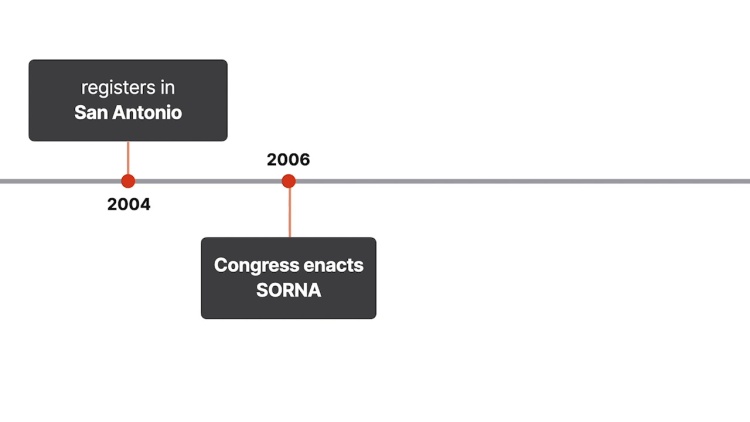United States v. Kebodeaux
United States Supreme Court
133 S. Ct. 2496 (2013)

- Written by Rich Walter, JD
Facts
Under both the 1994 Wetterling Act and the 2006 Sex Offender Registration and Notification Act (SORNA), Congress required certain convicted sexual offenders, including military personnel convicted of sexual offenses, to register their addresses with state authorities. SORNA tightened Wetterling Act provisions in some respects but made little change in the earlier statute's registration requirements. Both statutes reflected considerable evidence that sex-offender registration reduces recidivism and helps protect the public. In 1999, Anthony Kebodeaux (defendant), an Air Force servicemember, was convicted by a court martial for committing a sexual offense. Following Kebodeaux’s bad-conduct discharge and release from prison, Kebodeaux registered in Texas as a sex offender pursuant to the Wetterling Act. However, after SORNA's enactment, Kebodeaux violated the law by failing to inform state authorities of his change of address, for which the United States government (plaintiff) successfully prosecuted Kebodeaux in a federal district court. Kebodeaux appealed to the United States Court of Appeals for the Fifth Circuit, which reversed the district court. The government appealed to the United States Supreme Court, which granted certiorari.
Rule of Law
Issue
Holding and Reasoning (Breyer, J.)
Concurrence (Roberts, C.J.)
Concurrence (Alito, J.)
Dissent (Scalia, J.)
Dissent (Thomas, J.)
What to do next…
Here's why 911,000 law students have relied on our case briefs:
- Written by law professors and practitioners, not other law students. 47,100 briefs, keyed to 997 casebooks. Top-notch customer support.
- The right amount of information, includes the facts, issues, rule of law, holding and reasoning, and any concurrences and dissents.
- Access in your classes, works on your mobile and tablet. Massive library of related video lessons and high quality multiple-choice questions.
- Easy to use, uniform format for every case brief. Written in plain English, not in legalese. Our briefs summarize and simplify; they don’t just repeat the court’s language.





